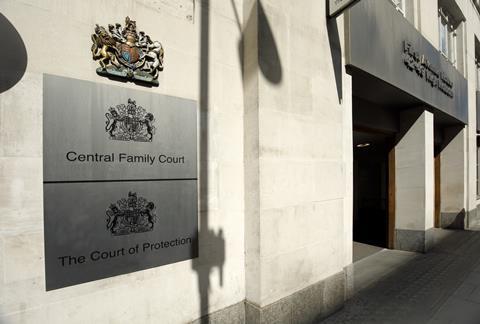Reporting restrictions have been lifted in a case about the medical treatment of a 29-year-old man, after his family hoped the publicity would help find an altruistic donor.
Jordan Tooke, who is diagnosed with autism, severe learning disabilities and Williams syndrome, suffers from chronic kidney disease and has entered end-stage renal failure. The Court of Protection judgment said without treatment Tooke would ‘further succumb to the disease, deteriorate and die’.
In Norfolk and Norwich University Hospitals NHS Foundations Trust & Ors v Jordan Tooke & Ors The Honourable Mr Justice Hayden found in favour of the family for Tooke to receive haemodialysis treatment. The hospital had argued that Tooke would ‘not be able to tolerate the considerable restrictions and privations’ involved in haemodialysis without sedation and it was not in his best interests. The treatment is a prerequisite for going on the transplant list.
The judge found, though ‘undoubtedly burdensome’, dialysis was not futile and ‘holds out the possibility, by transplantation, of a restoration to health’.
The judge lifted reporting restrictions to identify Tooke in the hope that publicity may be ‘effective’ in finding a live kidney donor.

The 20-page judgment said: ‘Jordan’s parents are both intensely committed to promoting the rights of people with disabilities and keen to take opportunity to signal to the wider public the importance of those rights. They have asked me to lift the reporting restrictions…to promote these principles.
‘Additionally, there are two more practical objectives which have caused me to yield to their application. Firstly, publicity may be effective in achieving for Jordan what is known an ‘altruistic donor’. By that is meant the receipt of a ‘live’ kidney.
‘The second objective, which might seem minor, but in my view is not, is the family’s desire to hunt down specialist clothing for Jordan which might help in the dialysis process. The central venous catheter (CVC) remains in situ permanently throughout dialysis. [Tooke’s] parents have assiduously researched to see whether there is any bespoke clothing that can effectively cover the line to diminish risk of Jordan accidentally or intentionally disconnecting the CVC. They have not been able to identify an operative supplier at the moment.
‘They consider that some publicity for this issue might assist. It strikes me that there is every possibility of this being successful,’ the judge concluded.
This article is now closed for comment.



























3 Readers' comments